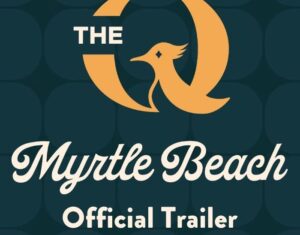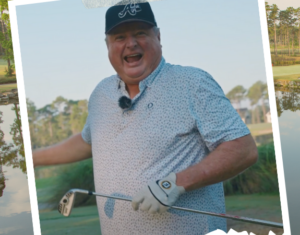Monday After the Masters’ Impact on South Carolina Youth
Each member of Hootie & the Blowfish offers his thoughts here on the satisfaction they’ve derived in seeing first-hand how the money they’ve raised through their charitable efforts is making a difference in the lives of South Carolina youth.
Charlie Rymer: Soni, I’d like to start with you on this. If I give $100 to a big charity, and $2 goes here, and $4 goes here, and $20 goes there, I can feel good about giving my money. But I don’t really know exactly how that’s impacting the community. I’m going to ask each of you guys this. Do you have a story or a moment that we can sort of drill down and relate to something that has specifically helped a kid or a family? A school, something that’s sort of personalizes it?
Jim “Soni” Sonefeld: I always enjoy – and this has happened numerous times – where I’ll run into someone who’s adult aged, younger, and they said, “I was your caddy in 1996, 2001, 2005.” And they say, “That was a great time, and I went off, and I got a scholarship to play in college. And now I’m married.” And the whole thing unfolds, and you realize you’ve had a direct impact on this child’s life who’s now an adult. And these kids have probably come through South Carolina Junior Golf as well, if they’re caddying the Monday After the Masters. So it is nice to put together, “You do a thing, you put money into it, and you see the results. And sometimes it comes back in the most pleasant of ways when you least expect it.”
Mark Bryan: I think Darius will back me up on this. We used to see in the paper that South Carolina was ranked really low in education. And so we felt like that was a place where we could actually make a difference and try to inspire the next generation a little bit. So that was a moment early on in our career where we noticed, “Hey, let’s go down that road.” And I think some of our giving started going in that direction once we realized that, and that was one moment. And later on down the road, after working with a lot of these programs and working through Carolina Studios, program I have in Charleston, realized that there are these programs that are taking care of kids that don’t have families. Whether their parents are in jail, or have passed on, or whatever it might be, and that they’re still giving them a life and giving them an education. And we’ve been able to help those programs, which we feel like are doing some of the most important work in the whole state. So those have been some of the most important things I’ve seen over the years.
Dean Felber: Yeah, the kids that have come out and caddied, and you run into them later, that’s always great to see how they’ve done. The scholarship winners, it’s amazing to me to see how long that’s been going on. And when you see how old some of the first kids are, it makes me feel a little old. It’s also very heart warming too.
Darius Rucker: One thing for me that has gotten crazier, like my son plays for a lot of South Carolina Junior Golf Association Events, and amazingly, some of the parents come up to me and say, “Thank you for the program.” When it started, I didn’t even think about it. We’ve been doing it for so long, it’s just part of what we do now, and we take care of South Carolina Junior Golf. And so many parents say to me, “Thank you, our program wouldn’t be what it is without you guys.” That’s pretty cool.



